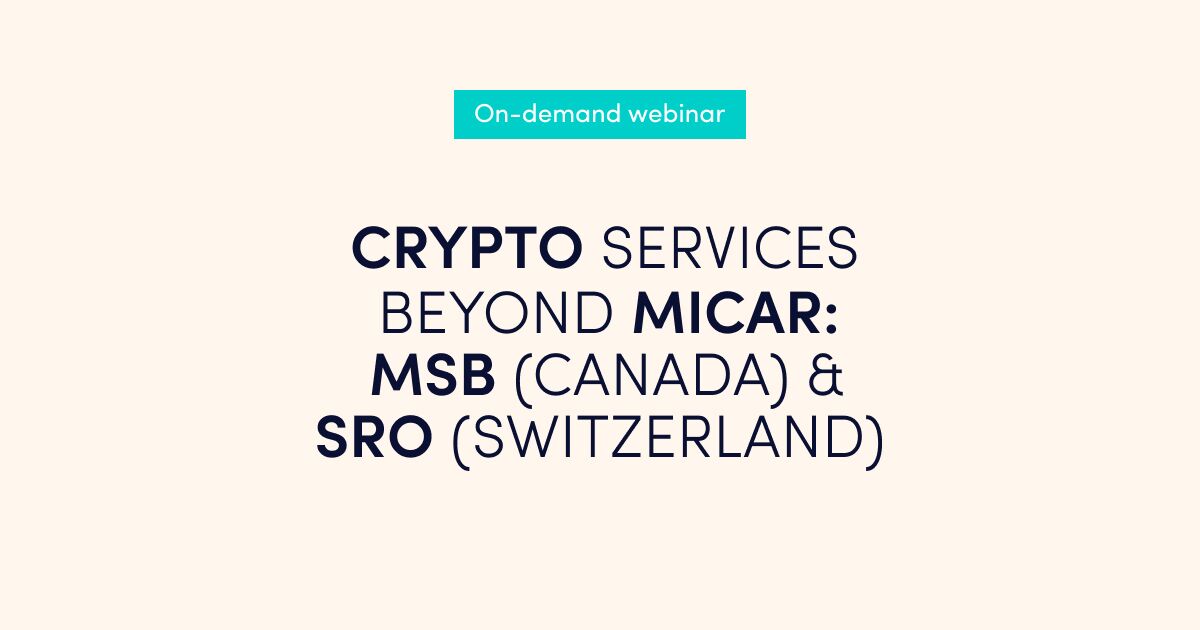
With the help of our local partners we assist in the full licensing process of obtaining a Payment or E-Money Institution license in Sweden
If you are looking to obtain a Payment and E-Money Institution license in Sweden, Advapay with the help of our local partners can offer you its legal, technical and business expertise and consulting support.
01
Application preparation, communication with the regulator, business services
Filling out an application form
Communication with regulatory authority during the application phase
Assistance in the development of a business plan
Assistance in the opening of safeguarding accounts
Company formation, staffing services
02
Preparation of legal, financial and IT documents
Preparation of legal, financial and IT documents
Legal documents – AML, KYC, IT/Security policies, etc.
Financial documentation – 3-years financial forecast, P&L statement, the flow of funds
Company operational documentation – internal policies, risk operation policies, internal audit, etc.
IT documentation
The regulator
The Finansinspektionen is Sweden’s financial supervisory authority. Their role is to promote stability and efficiency in the financial system as well as to ensure an effective consumer protection
Finansinspektionen (FI) authorises, supervises and monitors all companies operating in Swedish financial markets. Finansinspektionen is accountable to the Ministry of Finance.
Provision of payment services
Providing payment services requires authorisation from FI. According to the Payment Services Act (2010:751), it is possible to apply for authorisation or exemption from the authorisation obligation. A company that will have a turnover for payment services exceeding EUR 3 million per month must apply for authorisation and is considered by law to be a payment institution.
A company with a turnover lower than this threshold may apply to be exempt from the authorisation obligation and is called a ‘registered payment service provider’.
Issuing of electronic money
Issuing electronic money requires authorisation in accordance with the Electronic Money Act (2011:755). An entity issuing electronic money exceeding EUR 5 million on average or the equivalent is required to have authorisation to conduct operations, and the entity is considered an institution for electronic money.
An entity issuing electronic money averaging less than EUR 5 million may apply to be exempt from the authorisation obligation and is then considered a “registered issuer”.
In addition, payment and e-money institutions are subject to the Anti-Money Laundering and Terrorism Financing Act (2017:630) (“AML Act”) implementing the EU Anti-Money Laundering Directive (AMLD).
Fintech in Sweden
Stockholm is a globally renowned startup hub with such well-known Swedish startups like Spotify, Skype, and Klarna.
According to Fintech 2021 Report released by dealroom.co, it holds the 9th place in VC funding 2021 with $2.1B and the first place in % growth in ecosystem value (2021 vs 2020) showing 177% increase.
Stockholm attracts the attention of international investors – according to Startup Genome, Stockholm’s total early stage funding is $1B and its ecosystem value is $46B.
According to European Banking Authority data to 3 May 2022, Sweden is home to 61 Payment Institutions and 6 E-Money Institutions.
Doing business in Sweden
Sweden possesses a strong and stable economy and ranks 10th out of 190 economies for ease of doing business, according to the World Bank’s Doing Business report for 2020.
Low taxes
Sweden currently levies a corporate income tax of 20.6 per cent and there are no local taxes for companies.
Tech and skilled Talent
More than 40% of the population has a bachelor’s degree or more. Stockholm is in fourth place in the Times Higher Education World University Ranking with 12 universities. Sweden’s government prioritizes STEM in its education system. The country has several prestigious colleges and universities, which create a strong pool of tech talent.
Incentives
The incentive is granted in the form of a deduction from capital income equal to 50% of the acquisition cost of the investment. A special tax relief may be granted to foreign key personnel for a limited time period whereby 25% of income is exempt from income tax. Sweden also stimulates R&D activities – the incentive works as a deduction of the monthly employer cost and directly lowers labor costs.
Main requirements
Requirements for staff
The company must have 4-5 local personnel covering the following positions: Chief Executive Officer (CEO), Money Laundering Reporting Officer (MLRO), Chief Operating Officer (COO).
Initial Capital Requirements
Minimum Initial Capital Requirements are EUR 125,000 for Payment Institution and EUR 350,000 for E-money Institutions. E-money and Payment Institution with low turnover don’t have to observe initial capital requirements.
Language
All documentation, excluding a Business plan and Terms & Conditions can be submitted in English. A business plan and Terms & Conditions should be submitted in Swedish.
Fees and handling time
Fees
Applicants must pay a fee in conjunction with the application. The fee for an application for authorisation is SEK 200,000.
FI also charges an annual supervision fee. Institutions for electronic money must pay an annual supervision fee of SEK 75,000. For payment institutions, this fee is SEK 100,000 per year.
Registered issuers and registered payment service providers must pay an annual fee of SEK 25,000.
Handling time
FI will make a decision within three months provided that the application is complete and the fee is paid. In general, the full process of obtaining a license is 9-12 months long.
Documents
1) A description of its ownership structure including information about the natural or legal persons, the members and, if any, alternate members of its board of directors.
2) A forecast for the next three financial years. The forecast shall include a balance sheet and profit and loss account, a calculation of capital requirements, and information regarding how the results of the balance sheet and profit and loss account impact the undertaking’s initial capital.
3) A business plan that includes a detailed description of the operations related to the issuance of electronic money and/or payment services and a flow chart demonstrating the administrative processes in place for the operations related to the issuance of electronic money and/or payment services.
4) Safeguarding funds – in its business plan a firm shall account for how it intends to fulfil the requirement to safeguard the funds held to execute payment transactions and issuance of electronic money.
5) Outsourcing agreements – if a firm has outsourced or intends to outsource to a third party activities that entail carrying out work or functions related to payment services and/or issuance of electronic money
6) Agents – an undertaking’s business plan shall describe how it intends to engage agents for the provision of payment services or distribution and redemption of electronic money.
7) Cross-border operations – an undertaking’s business plan shall state if it intends to issue electronic money via cross-border operations and how it will organise its IT activities for the issuance of electronic money
8) Compliance – the business plan shall state how an undertaking intends to ensure that it complies with the regulations that apply to the issuance of electronic money and payment services. The business plan shall furthermore contain an account of how a compliance function will be designed and how its work will be carried out.
9) Risk management and risk control – the business plan shall state how an undertaking intends to identify, measure, govern, report internally and control the risks associated with its operations related to the issuance of electronic money and payment services.
10) Internal audit – in its business plan, an undertaking which has an internal audit function shall describe how this function will be designed and how its work will be carried out.
11) Complaints handling – the business plan shall state the procedures that the firm intends to apply when handling complaints from payment service users and/or complaints linked to its operations related to the issuance of electronic money.
12) Prevention of money laundering and financing of terrorism – the business plan shall state how a firm intends to carry out the prevention of money laundering and financing of terrorism in its payment service operations and operations related to the issuance of electronic money. Information about the person at the undertaking responsible for the central function in these issues shall be identified.
13) Events of material significance – a firm shall account in its business plan for its procedures for reporting to Finansinspektionen events of material significance.
14) Information systems and security issues – the business plan shall state how a firm’s IT operations for payment services shall be organised. This shall include a general description of the IT systems’ functions and application areas as well as an account of the confidentiality functions used to prevent unauthorised persons from obtaining access to classified information from payment service activities.
Jurisdictions
we cover
We have a strong focus on fintech businesses like digital banks, e-wallets, fiat-crypto wallets, e-commerce banking and remittance.



















